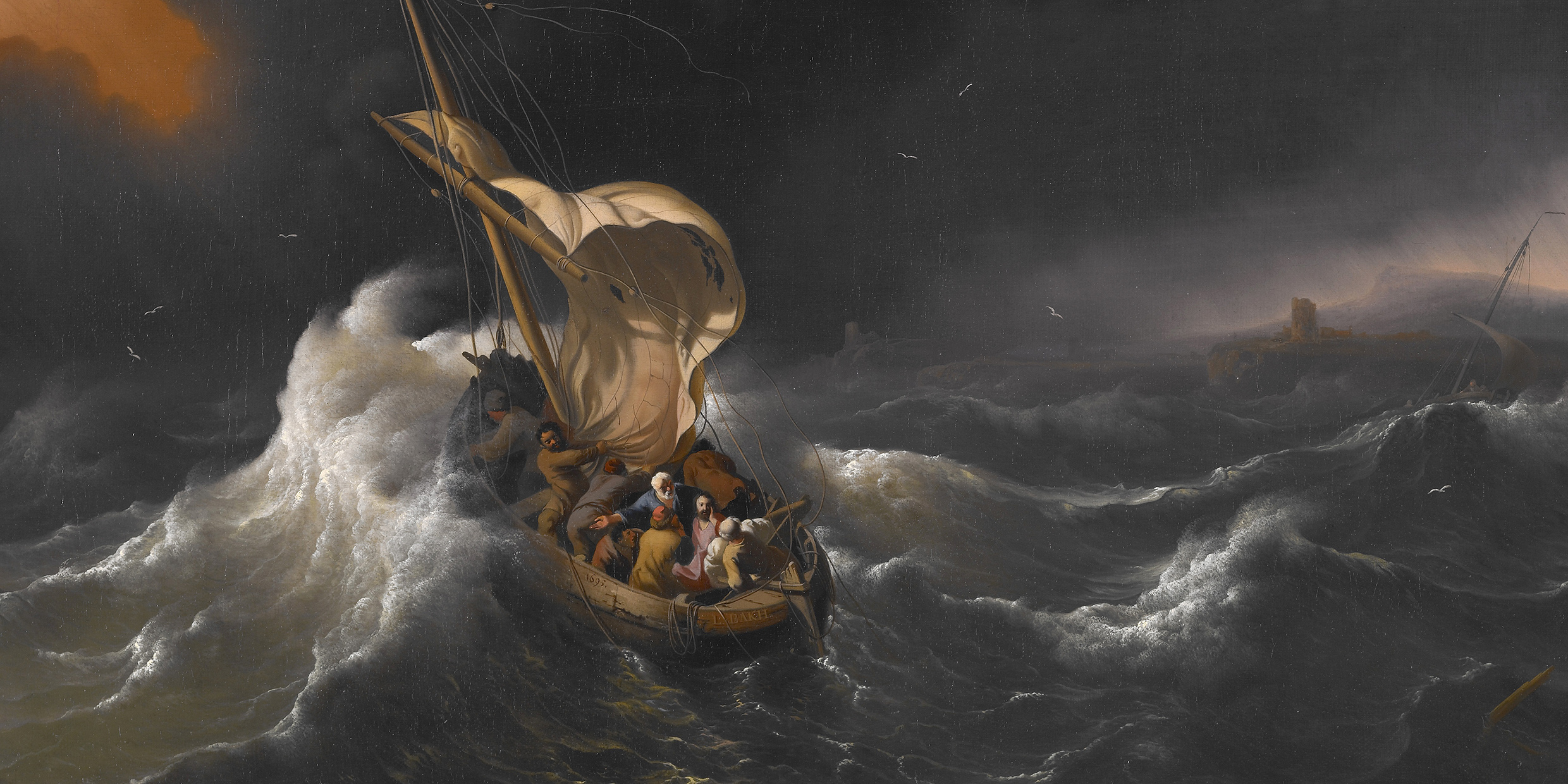Originally published 5 March 1990
When a hurricane devastated Britain in October 1987, the British Meteorological Office took a drubbing for not providing sufficient warning.
The forecasters did a better job with the damaging gales of recent weeks. For their successes they owe a debt to one of the lost souls of science—Robert FitzRoy, pioneer of weather forecasting.
No, it’s not quite accurate to call FitzRoy a “lost soul.” He is remembered well enough, but only as commander of HMS Beagle, the vessel that carried young Charles Darwin around the world on his famous voyage of discovery.
The Beagle left Plymouth, England, on the 27th of December, 1831, with the assigned task of mapping the coast of South America. It was not without some misgivings that Commander FitzRoy welcomed aboard the tag-along naturalist.
Both men were in their twenties, and eager to establish themselves in their respective careers. During the voyage, they enjoyed each other’s company and developed a grudging mutual respect, but two more different characters could hardly be imagined.
The Captain and the Naturalist
FitzRoy was the aristocrat, grandson of the 3rd Duke of Grafton and the 1st Marquis of Londonderry, a descendent of the illicit relationship between King Charles II and Barbara Villiers. He was Tory in politics, conservative in religion, brave, restless, uncompromising.
Darwin was a son of the wealthy new middle class created by the Industrial Revolution. His father and grandfather were successful country doctors. The family was Whig and Liberal in politics, forward-looking and adventurous in thought.
As FitzRoy mapped the coast, Darwin observed clues to the Earth’s deep past. In the officer’s mess, ship’s captain and naturalist debated Earth history, FitzRoy taking the traditional view that the planet was created a few thousand years ago as described in Genesis.
Upon return to England after a five year circumnavigation of the globe, FitzRoy published a massive two-volume account of the voyage, to which was appended a third volume by Darwin.
For his contributions to marine cartography, FitzRoy was awarded the gold medal of the Royal Geographic Society and elected to the Royal Society, Britain’s foremost scientific institution. But it is Darwin’s account of the voyage that has come down to us as a classic of the history of science, while FitzRoy’s narrative has sunk into obscurity.
FitzRoy’s career was haunted at every turn by disappointment and discord, perhaps in part because of his own tormented personality.
In 1854 FitzRoy was appointed statistician to the newly-formed meteorologic department of the Board of Trade, and it was here that he was to make his greatest contribution to science.
First weather forecasts
He was not content to merely compile weather data; he wanted to warn sailors and coastal communities of approaching gales. He supplied cheap barometers to sea-going fishermen with the understanding that they maintain records, and established a series of coastal stations that telegraphed weather data to London. Within this mass of data he looked for patterns, and soon was drawing weather charts and issuing forecasts. The Times of London began printing daily weather forecasts in 1860 on the basis of FitzRoy’s work. Many of his meteorological innovations remain today a familiar part of British culture.
In the summer of 1860 FitzRoy came to the annual meeting of the British Association at Oxford to deliver a paper on “British Storms.” He was in the audience, at a later session of the meeting, for the famous debate on evolution between Thomas Huxley, Darwin’s young protégé, and Samuel Wilberforce, Bishop of Oxford. In the ensuing uproar FitzRoy leapt to his feet in a rage, waving a copy of the Scriptures. “Here is truth,” he cried, “nowhere else.” He was shouted down. Once again the day went to Darwin.
Back at the Meteorologic Office, more trouble was brewing. When FitzRoy’s weather forecasts failed, as they often did, he was severely criticized by the public. His scientific colleagues were even more vehement. He had been hired to compile data, they said, not use it. And principles of weather systems should be better understood before warnings were issued to the public.
All his life FitzRoy was subject to bouts of depression. This latest controversy was too much to bear. On Sunday morning, April 3rd, 1865, at age 59, he slit his throat with a razor.
Robert FitzRoy has a secure place in the history of science. Unfortunately, it’s the wrong place. He is remembered as Darwin’s Bible-waving nemesis rather than the first modern weatherman.



